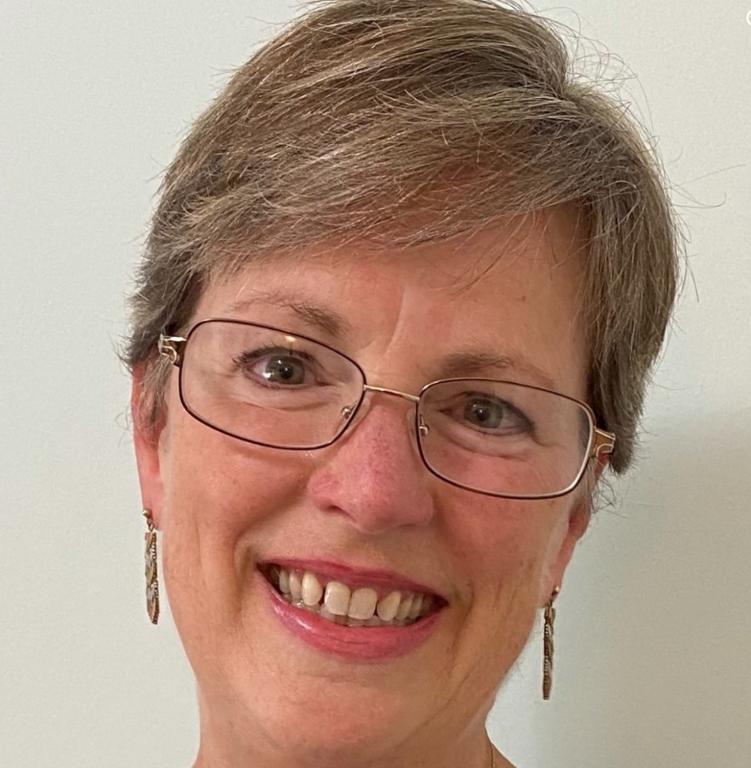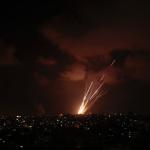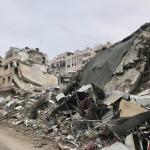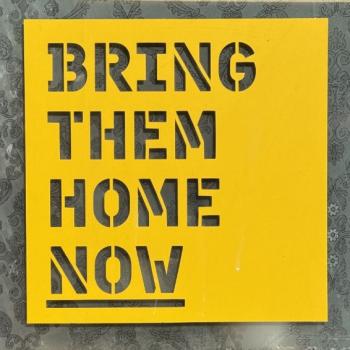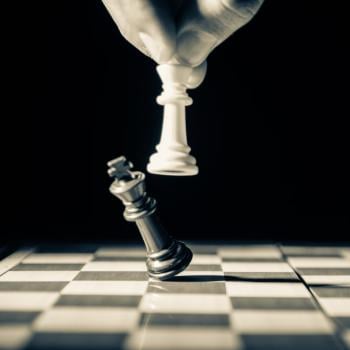Gaza has been under a near total communications blackout for over a week. Can you imagine going eight days without the smart part of your cell phone? No Siri, no weather app, no texting, no WhatsApping…all of those things that connect us to the world around us.
Occasionally, someone will find a faint signal – I don’t understand how that works. Maybe it’s a miracle.
In Gaza lately, people have been using their phones mostly as flashlights. When there is a middle-of-the-night airstrike on a building, some of the bystanders light up the scene, and the rest dig by hand for survivors. That’s about all a phone is good for these days – but if your family is under the rubble, it’s invaluable.
Of course, you can’t call an ambulance if you find a survivor, but at least you can take a photo to post on Instagram after the war.
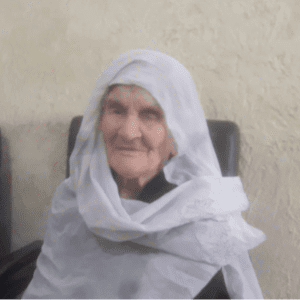
FUNERAL
This is someone you’ve heard about, if you’ve been reading Grace Colored Glasses for any length of time. This is Zahiyyeh, (za-HEE-uh) a sister of my father-in-law. Also the grandmother of Horea and Mousa and their siblings.
She experienced the Nakba as a young wife and mother, running from home into exile from the family village, Ibdis, on July 8, 1948. She ended up in Nuseirat refugee camp in Gaza, where she raised a family and watched her children raise their families.
Zahiyyeh spent almost the entire rest of her life in the camp. Less than a month ago, on December 25th, their family was ordered to evacuate their home (you can read the story here). She didn’t want to leave, and wept bitterly when it was time to go.
A donkey cart and then a flatbed truck carried the family to Khan Younis, where they crowded into a relative’s house along with around thirty others. At the age of 97, this must have been physically and emotionally such a difficult trip, I’m sure not one of us can even begin to imagine.
On January 17th, Zahiyyeh left behind her second Nakba and joined her twin sister in heaven.
We have no other details, since the blackout has prevented any communication with the family. We only know this much because after it was discovered that she was gone, our nephew Musa walked “for a long distance on foot to find the internet” and convey the news to his brother Sami, who left Gaza and is now in Crete. Sami and I stay in touch all the time. This is what I heard from him (with help from Google Translate):
I want to tell you this sad news…that I received today. All day long I collapsed from crying… I did not eat or drink. I was very affected… Missing a dear person is not an easy thing, it is very sad… but we will be satisfied with God’s will.. My grandmother Zahia passed away this morning.
We don’t know anything else besides that. We are guessing that she died in her sleep. No doubt her family is devastated. She was beloved by everyone around her. I wait for Gaza to have its communications restored so that my husband and I can join the family in their grief, perhaps offer a little comfort.
I like to think that, since she was never allowed to return home, maybe Zahiyyeh found that heaven is just like Ibdis.
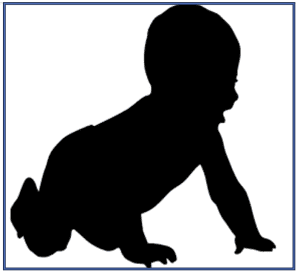 FUNERAL
FUNERAL
Mohammed Ali Fathy Safi, a member of our extended family, was killed Thursday, along with one other member of his family. At the moment, we don’t have a photo. He was ten months old.
Just in case this isn’t heartbreaking enough, the attack in which Mohammed was killed reportedly involved white phosphorus.
Use of white phosphorus in civilian areas is considered a war crime due to its extremely dangerous effects on the human body. White phosphorus ignites instantly when in contact with oxygen.
It can burn through the human body, including through bone, causing severe, excruciating damage.
It can also cause extreme harm when inhaled, with risks of suffocation, cardiovascular failure, coma, death, and other lifelong effects. The substance burns at temperatures of up to 1,500 degrees Fahrenheit.
Bottom line: baby Mohammed did not go gently into the night. His was a horrific death.
The brother of a dear friend of mine was in a white phosphorus attack a number of years ago, and survived – but only after he was transferred to a hospital in Turkiye and spent many months undergoing excruciating surgeries.
My niece Horea also had a friend who died in a white phosphorus attack in 2008.
White phosphorus is easy to recognize, and journalists covering the 2008-2009 war began reporting Israel’s use of the substance. Both Human Rights Watch and Amnesty International corroborated the evidence.
When pressed, an IDF spokesperson told CNN, “I can tell you with certainty that white phosphorus is absolutely not being used.”
Later, Israel confessed that yes, white phosphorus had been used, but only in ways that are “in compliance with international law.” Well, that was a lie. Period.
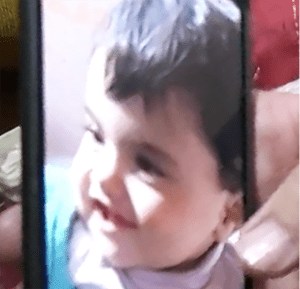
FUNERAL
Tala Rouqa was not a member of our extended family. But she was a member of the extended family of humanity, and her short story is in a way representative of the Palestinian people’s story.
In December, Tala’s home in Rafah was bombed.
No, that’s not true. Tala and her family had fled from Gaza City when Israel ordered them to evacuate. They went to Khan Younis until Israel instructed them to head to Rafah. As they sheltered in an abandoned house in Rafah, it was bombed.
Tala’s father Ahmad was pulled alive from the rubble, then Tala. All the others present were killed – his mother, his wife, his son and another daughter, three of his brothers, and his brother-in-law.
Tala, ten months old, was all Ahmad had left. Now Tala has died, leaving him in despair. It’s not clear exactly why she died – except for the fact that she was in a house that Israel decided to bomb.
Tala is something of a metaphor for the Palestinian people. She was beautiful, brimming with potential. She deserved every opportunity in life. But from the day she was born, she was marked for death simply because she was Palestinian. Everything that she managed to do just to have the bare minimum – safety, shelter – was thwarted by Israeli cruelty, until ultimately, it destroyed her.
It destroyed Mohammad and Zahiyyeh too, in different ways and at different times. It destroyed every one of the 25,000 who have died in the last three months, and the sixty thousand who have been injured. Even those who are still alive and uninjured – they are traumatized and will never be the same. Every Palestinian has looked into the face of death. No Palestinian is exempt.
Israel has withheld food, medicine, water, and any semblance of normalcy or safety.
My husband left Gaza at the age of six, but he was permanently scarred by Israel’s treatment, and by what it is doing to his family today. The trauma will follow him for the rest of his life. It will follow our children, and their children.
Palestinians are a nuisance to both Israel and America. Their lives do not matter. They have no inherent value. The number of their dead is inconsequential. 500? 5,000? 25,000? We shrug our shoulders and go about our business. When it hits 100,000, we still won’t care.
I share these stories, not to “humanize” three Palestinian individuals, but as a reminder that every one of the 25,000 Palestinians who have been killed has a story, a family. Every one of them is being mourned. Every one of those deaths was unnecessary, and is the fault of Israel. And the United States has stood staunchly at Israel’s side and opened its wallet to pay the bills.
“Now Kathy, don’t get political. Don’t cheapen their lives.”
LISTEN.
If 25,000 deaths is political – if 10,000 child deaths is political – you need to rethink the word “political.” Everyone on both sides of the aisle cares about the massacre of human beings. The right to life is not a political right, but a human right.
Maybe the problem is that you don’t think Palestinians are human beings.
We’ll explore that possibility next time.
Oh, I promised you a wedding. Here it is. Enjoy.
Gaza is not going away. If you’re not familiar with the topic, there’s a list of informative articles below.
I invite you to subscribe to my newsletter. I write about the Palestine-Israel issue regularly, and other issues relevant to progressives or those considering becoming progressive. If you would like to comment on this post, please pop over to my Facebook page. All of my posts are there and open to constructive comment. I welcome your thoughts.
Posts about our Gazan family:
- Follow this refugee family’s quest for survival in Gaza
- The hardest decision our family in Gaza has ever made
- The unexpected one-word message coming out of Gaza today
- The new normal: eating during a famine in Gaza
- The truth about Gaza: “I swear, we don’t mind death”
- The reality of survival in Gaza, on Spiritual Brewpub
Further reading on the Palestine-Israel issue:
- Can followers of the Prince of Peace support a group that uses violence?
- Why support for Palestinian resistance is the right response for Christians
- This thought experiment will make you smarter about Gaza and Israel
- A Palestinian Pastor’s powerful message to us: “it’s time to stop praying”
- Christians: Why do we skimp on compassion when it comes to Palestinians?
- Don’t compromise truth on Israel and Palestine
- What People Of Faith Need To Know About Gaza And Israel Right Now
FEATURED IMAGE: by Ha Nguyen via Unsplash


